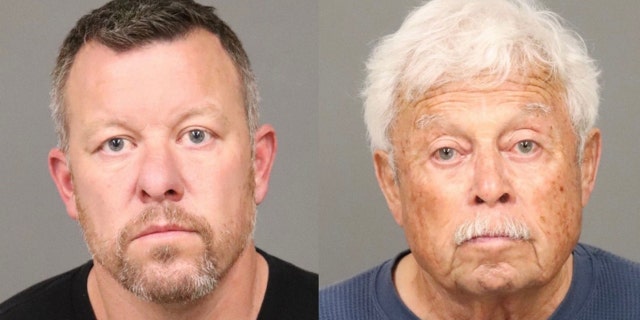NEWYou can now listen to Fox News articles!
The California trial for Paul Flores, the man accused of killing college freshman Kristin Smart in 1996, and his father, who allegedly helped his son hide her body, will resume as planned on Thursday after being “unexpectedly” delayed earlier in the week, officials confirmed.
Monterey County Superior Court’s public information liaison Norma Ramirez-Zapata wrote in an email to media on Wednesday that opening statements for Ruben Flores would resume at 8:30 a.m. local time Thursday before presentation of evidence begins.
On Tuesday, Ramirez-Zapata told Fox News Digital that the case was “unexpectedly continued to Thursday,” but did not say why. A Monterey County court spokesperson did not respond to Fox News Digital’s multiple inquiries on Wednesday regarding the reason for the delay.
Thursday is expected to be the second full day of trial in a case that has rocked the nation for more than 25 years.
Sept. 7, 2016: A sign outside the James R. Murphy, Jr. law office in Arroyo Grande, Calif., offers a reward for information in the 1996 disappearance of Kristin Smart.
(AP Photo)
Paul Flores, now 45, was charged with murder in connection with Smart’s presumed death, though her body has never been recovered. Ruben Flores, 81, was charged as an accessory for allegedly aiding his son in the disposing of her body. Both men have pleaded not guilty.
The younger Flores is accused of killing Smart on May 25, 1996, when both were freshmen at California Polytechnic State University in San Luis Obispo. Paul was allegedly the last person seen with Smart, who was said to have been intoxicated after they and others had attended an off-campus frat party over the Memorial Day weekend.

Paul Flores, on the left, was charged with murder. Ruben Flores, on the right, was charged with accessory after the fact.
(Courtesy | San Luis Obispo County Jail)
Prosecutors have further alleged that Ruben Flores then helped bury Smart’s body behind his Arroyo Grande home, but later unearthed and relocated the remains.
Defense attorneys tried to poke holes in prosecutors’ statements in their own opening remarks on Monday. Paul Flores’ lawyer also attempted to discredit the use of cadaver dogs and the forensic evidence to which prosecutors have pointed.
CLICK HERE TO GET THE FOX NEWS APP
The trial is expected to take an estimated four months. Separate juries were selected from a pool of more than 1,500 Monterey County residents to oversee each case.